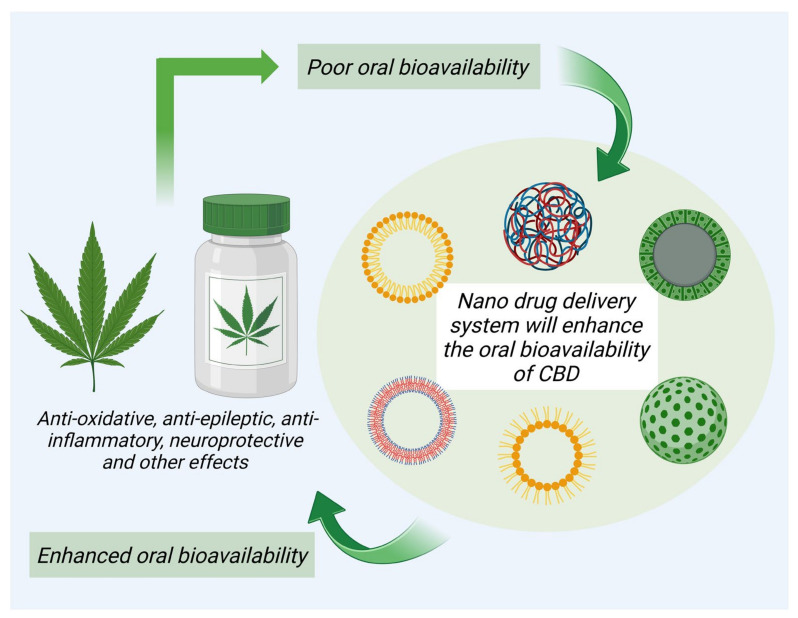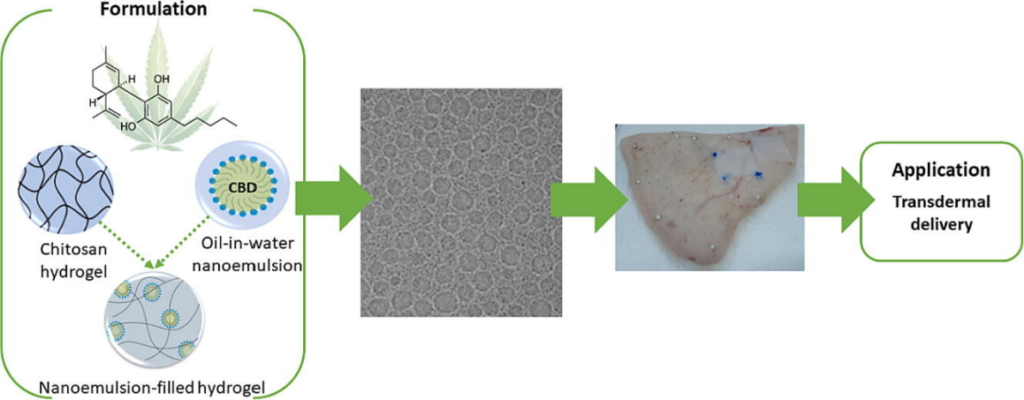
Cannabidiol Encapsulated-nanocarriers: Precision & Therapeutic Uses
Introduction:
Cannabidiol (CBD), a non-psychoactive cannabinoid derived from the Cannabis sativa plant, has emerged as a promising therapeutic agent with diverse applications. To enhance its bioavailability and targeted delivery, researchers are exploring innovative approaches, and one such avenue is the use of nanocarriers. This blog explores the fascinating world of CBD-loaded nanocarriers and their potential therapeutic applications across various medical domains.
Understanding Nanocarriers:
Nano-sized Marvels:
Nanocarriers are minute structures designed to encapsulate and transport therapeutic agents. In the case of CBD, these nanocarriers can be lipid-based (liposomes, micelles), polymeric (nanoparticles, nanocapsules), or hybrid systems. Their small size grants them access to cellular and subcellular levels, facilitating efficient drug delivery.
Enhancing Bioavailability:
CBD, like many other cannabinoids, faces challenges related to poor water solubility and low bioavailability. Nanocarriers address these hurdles by improving solubility and stability, ensuring more effective absorption and distribution within the body.
Therapeutic Applications:
Pain Management and Inflammation:
CBD-loaded nanocarriers show promise in pain management and inflammation. By precisely delivering CBD to targeted sites, these nanocarriers may enhance the therapeutic effects, offering potential relief for conditions such as arthritis, neuropathic pain, and inflammatory disorders.
Neurological Disorders:
Nanocarrier-mediated CBD delivery holds potential for neurological disorders like epilepsy and neurodegenerative diseases. By crossing the blood-brain barrier more efficiently, CBD-loaded nanocarriers may enhance the neuroprotective effects, opening new avenues for treating conditions such as Alzheimer’s and Parkinson’s.
Cancer Therapy:
In the realm of oncology, CBD-loaded nanocarriers are being explored for their anti-cancer properties. By targeting cancer cells more selectively, these nanocarriers may augment the anti-proliferative and apoptotic effects of CBD, presenting an innovative approach to cancer therapy.
Anxiety and Mental Health:
CBD’s potential anxiolytic and anti-depressant effects can be amplified through nanocarrier delivery. This targeted approach may offer advantages in managing anxiety disorders, depression, and other mental health conditions, with reduced side effects compared to traditional treatments.
Skin Disorders:
Topical application of CBD-loaded nanocarriers shows promise in dermatology. Targeting skin conditions such as psoriasis, eczema, and acne, these nanocarriers can enhance CBD’s therapeutic effects while minimizing systemic exposure.

Conclusion:
The integration of CBD-loaded nanocarriers into therapeutic strategies represents a significant leap forward in precision medicine. As researchers continue to unravel the intricacies of cannabinoid pharmacology, nanocarriers stand out as a sophisticated tool to optimize CBD’s therapeutic potential. From pain management to neurological disorders and beyond, the marriage of CBD and nanocarriers holds exciting prospects for the future of targeted, efficient, and personalized
